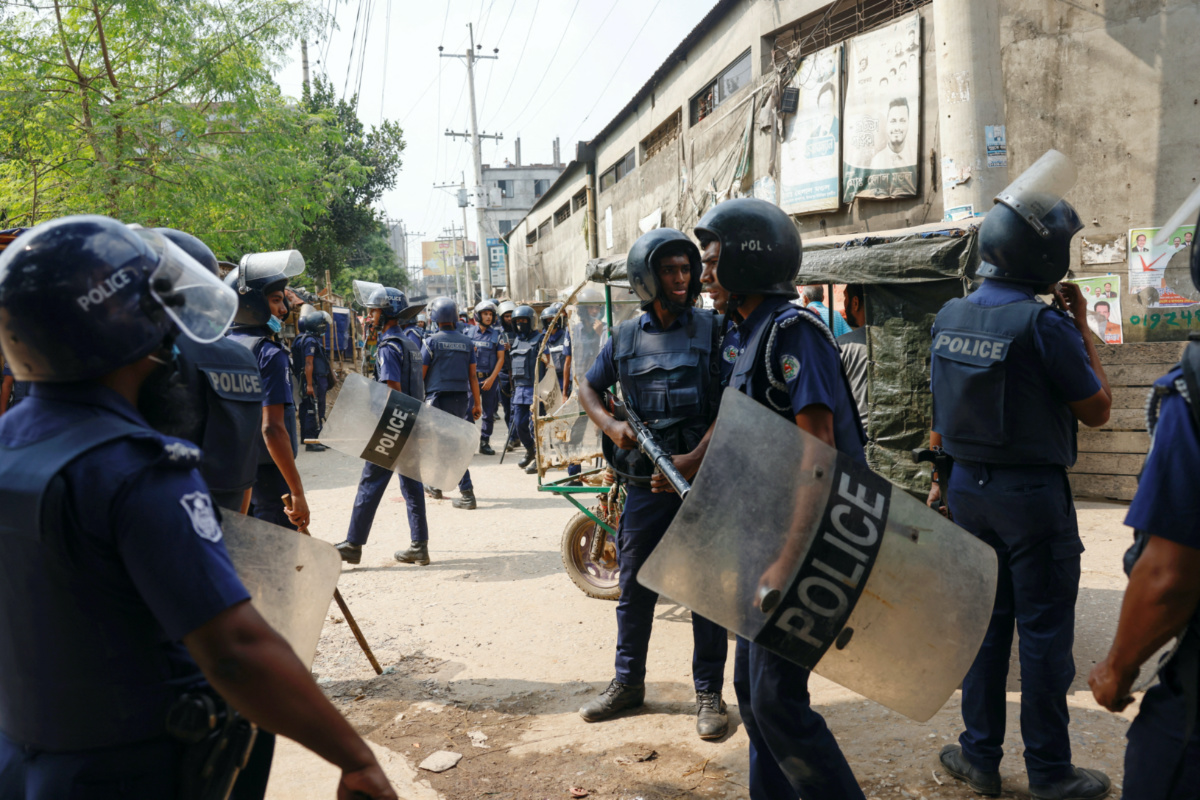Dhaka, Bangladesh
Reuters
One woman was killed as police in Bangladesh used teargas and rubber bullets to disperse stone-throwing protesters as a demonstration by garment workers for more pay turned violent on Wednesday.
The latest death was the third since protests erupted in the past week. On Tuesday, the government said that the minimum wage would rise by 56.25 per cent to 12,500 taka ($US114) a month from 1st December, the first increase in five years, but the workers are demanding almost twice the amount offered.

Security forces in front of the garment factories, following clashes between garment industry workers and police over pay, at the Ashulia area, outskirts of Dhaka, Bangladesh, on 8th November, 2023. PICTURE: Reuters/Mohammad Ponir Hossain
Police said hundreds of workers had taken to the streets in the garment hub of Gazipur, on the outskirts of the capital Dhaka.
“The workers blocked roads and vandalized several vehicles. We had to use tear gas, rubber bullets and sound grenades to disperse the unruly workers, who were throwing brick chips at us,” local police officer Ashraf Uddin said.
The worker was injured in the clash and died on the way to hospital, the police officer added without providing further details.
PREVIOUSLY: Global fashion factories in Bangladesh resigned to slimmer margins ahead of wage hike
The area remained tense and there was heavy police presence, witnesses said.
The US State Department condemned the violence.
“We call on the government of Bangladesh to protect workers’ right to peaceful protest and investigate allegations of false criminal charges against workers and labor leaders,” the State Department said in a statement.
Low wages have helped Bangladesh build its garment industry, with some 4,000 factories employing four million workers, supplying brands such as H&M and GAP. Readymade garments are a mainstay of the economy, accounting for almost 16 per cent of GDP.
Siddiqur Rahman, the owners’ representative on the wage panel, urged workers to return to work and said that continuing unrest could threaten livelihoods.
“In the greater interest of the sector, we agreed to the rise. Everyone must refrain from such anarchy. Otherwise, they will pay for it. If factories are closed, how will you earn?” Rahman said.
One protester was unmoved: “We will continue protesting until we realize our demand.”
The protests have coincided with violent anti-government demonstrations demanding the resignation of Prime Minister Sheikh Hasina and calling for a free and fair vote under a caretaker government.






